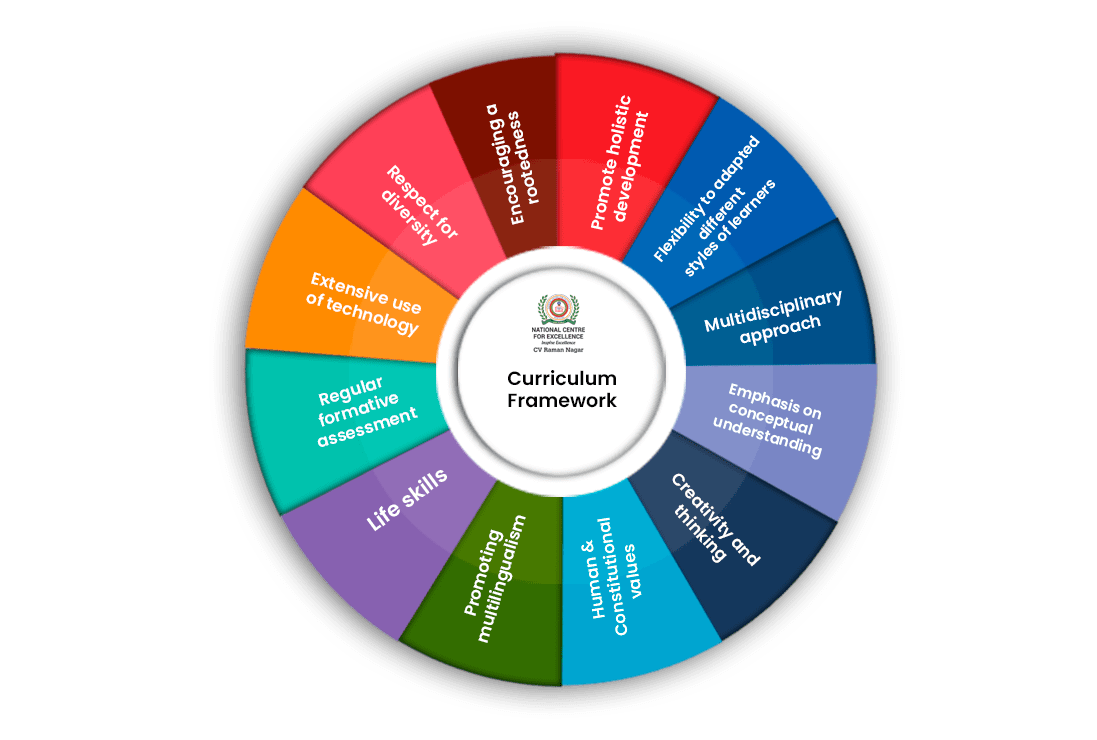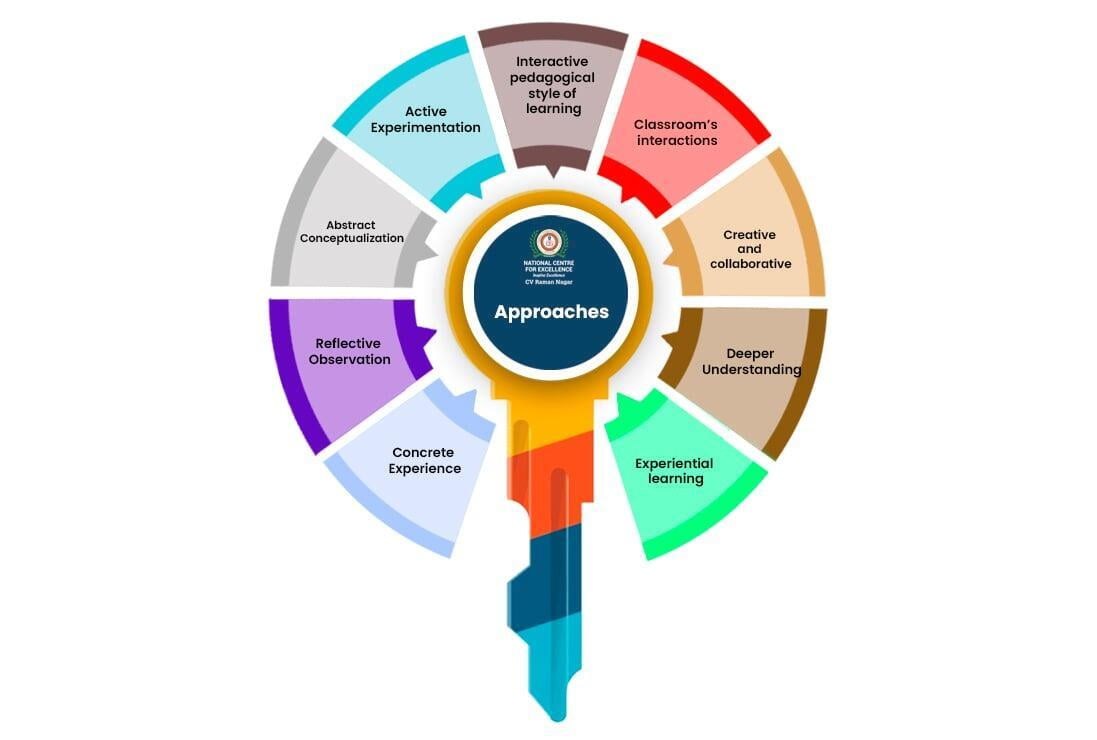Preparatory Stage
Preparatory Stage
Grade 3 to Grade 5
3 Years (Age group 8-11)
Laying the foundation for excellence.
Grade 3 to Grade 5
3 Years (Age group 8-11)
Laying the foundation for excellence.
Introduction to NCFE Preparatory Stage
Vision in Achieving the NEP
Creative imagination, with sound ethical moorings and values. It aims at producing engaged, productive, and contributing citizens for building an equitable, inclusive, and plural society as envisaged by our Constitution. A good education institution is one in which every student feels welcomed and cared for, where a safe and stimulating learning environment exists, where a wide range of learning experiences are offered, and where good physical infrastructure and appropriate resources conducive to learning are available to all students. Attaining these qualities must be the goal of every educational institution and that’s what you experience in National Centre for Excellence. However, at the same time, there must also be seamless integration and coordination across all stages of education.
Implementing of Preparatory Stage
Implementing of Preparatory Stage
While the NEP 2020 is pushing for experiential learning process in the future, National Centre for Excellence does a lot to promote a hands-on learning approach within and outside their classrooms. Among many others things, these include:
- Conducting mock classroom trials and debates.
- Creating out-of-class community service opportunities for students.
- Using interactive learning apps to create an immersive and engaging environment, wherever they may be.
- Role-playing activities that replicate famous real-life events to help students memorize different people.
- Encouraging scientific experiments and open-minded questions to determine cause and effect.
- Creativity, Collaboration and Innovation in teaching and learning.





